Driving Change: A Guide to Community Engagement Initiatives
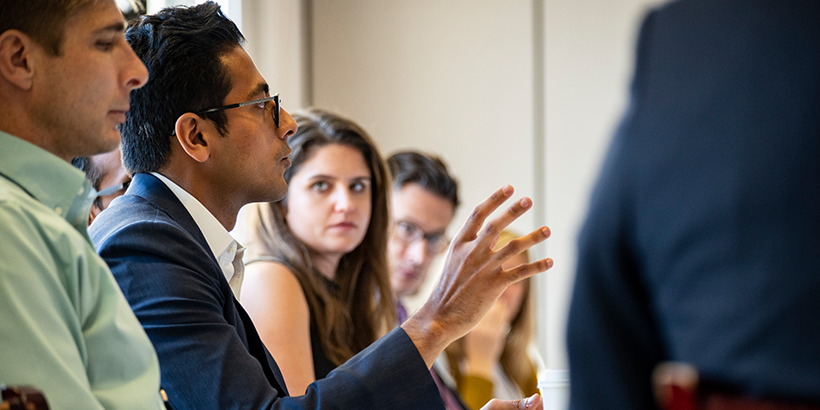
Community engagement is the foundation of a thriving society, fostering civic participation and empowering individuals to influence decisions that shape their communities. Effective community engagement initiatives promote inclusivity, encourage collaboration, and ensure that diverse voices contribute to public policy and local governance.
This guide explores various strategies for engaging with your community, advocating for policy changes, and making a tangible impact.
Why is Community Engagement Important?
Community engagement strengthens democracy by giving individuals a direct role in shaping policies that affect their lives. It enhances transparency, accountability, and trust between citizens and decision-makers. When community members actively participate in governance, policies become more reflective of public needs, leading to better outcomes for all stakeholders.
By fostering engagement, local governments and organizations can gather balanced insights,
increase civic participation, and ensure sustainable development driven by collective
efforts.
Ways to Get Involved in Community Engagement Initiatives

If you're interested in helping shape your community's future, there are numerous ways to contribute to public policy and community development. Whether through direct action, advocacy, research, or education, here are some key engagement strategies:
Community Organizing
Engage With Local Community Groups
Joining established community organizations is a practical way to drive meaningful change. These groups maintain trusting relationships with local residents, and as a result, often have deep insights into the community's needs and are platforms for advocacy. Supporting them through volunteer work, resource sharing, or strategic partnerships can amplify their impact.
For instance, local governments can provide community centers where groups can hold meetings or conduct training sessions. This not only strengthens the groups' operational capabilities but also visibly demonstrates the local government's commitment to supporting grassroots community engagement.
Host Town Hall Meetings or Public Forums
Public forums provide spaces where residents can present their views, voice concerns,
ask questions, and receive direct responses from elected officials. They are instrumental
in gathering public opinion and fostering transparent dialogue between the community
and policymakers. Ensuring accessibility through in-person and virtual options increases
participation, which fosters inclusive and productive discussions.
Advocacy and Lobbying
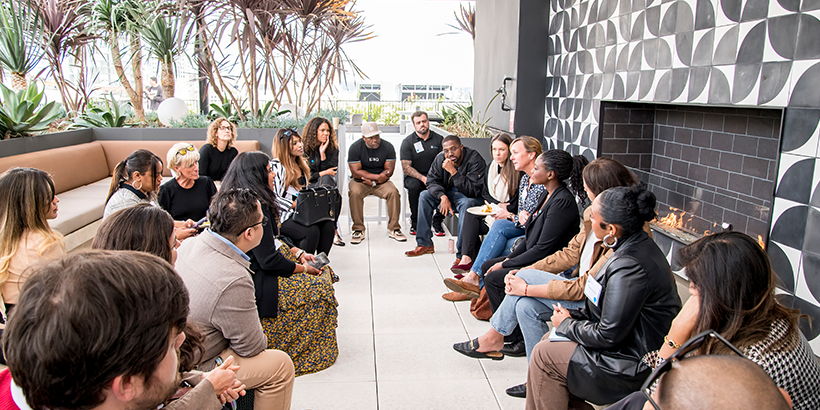
Collaborate With Advocacy Groups
Partnering with advocacy groups can strengthen your efforts in promoting policy changes. These groups offer expertise, resources, and communication channels that enhance the effectiveness of community-led initiatives.
Meet With Elected Officials
Meetings with elected officials allow community members and leaders to present their concerns and suggestions directly to policymakers. For officials, these interactions provide insightful feedback and a clear understanding of the community's needs, helping them to serve more effectively. Preparing clear agendas, data-driven arguments, and constructive dialogue ensures productive discussions that influence decision-making.
Write Letters to Policymakers
Writing letters to policymakers allows individuals to articulate their points in a
thoughtful, direct manner and serves as a formal record of public opinion. Providing
templates and organizing communication workshops and letter-writing stations at community
events can encourage greater participation in policy discussions.
Policy Research and Analysis

Conduct Research on Pressing Community Issues
Gathering data on pressing issues helps create well-informed advocacy campaigns. Community engagement initiatives often benefit from partnerships with local universities, research institutions, and think tanks that can provide the expertise and resources needed for comprehensive studies.
Community-driven research should focus on gathering both qualitative and quantitative data to provide a holistic view of the issues. Surveys, interviews, and focus groups can capture the voices and experiences of people in the community, while statistical analysis can reveal trends and patterns that might not be immediately obvious. This balanced approach ensures that policy recommendations are well-supported and tailored to the actual needs of the community.
Analyze Existing Policies
Understanding current policies helps identify gaps and areas for improvement. Community members can engage experts or undergo training to assess policies and propose evidence-based reforms.
Publish Reports or White Papers to Educate Policymakers
Publishing detailed reports or white papers communicates research findings and policy analyses to the local government, other community groups, and the general public. These reports and policy briefs educate stakeholders, influence policymakers, and fosters greater public understanding of key issues.
Election and Campaign Participation
Volunteer for Political Campaigns
Volunteering for political campaigns is a powerful way to engage with the community and shape the political landscape by supporting candidates who reflect local values. Engagement efforts can range from canvassing and phone banking to organizing fundraising events and managing social media campaigns. For many citizens, this is a first step into broader civic participation, offering valuable experience and networking opportunities.
Register Voters and Promote Civic Engagement
Voter registration empowers community members to have a say in their governance. Providing accessible information about voting procedures through voter education campaigns encourages higher turnout and informed decision-making.
Run for Local Office
For those deeply committed to change, running for local office is a direct way to
impact governance. Candidates can leverage their community relationships to advocate
for policies that address pressing concerns.
Education and Awareness Initiatives

Develop Educational Materials on Public Policy Issues
Creating simplified resources—such as infographics, short videos, and brochures—educates residents on policy matters and promotes informed participation. Workshops that showcase and discuss these materials engage citizens who have questions about how these policies affect them personally. By fostering informed discussions, communities can cultivate a sense of local ownership, leading to more meaningful dialogue and collaborative decision-making.
Promote Civic Education in Schools
Encouraging the integration of civic education in school curricula educates young
people about their civic duties and rights and encourages early engagement with public
policy issues. Programs can be designed to teach students—our future leaders—about
local government structures, the electoral process, and how ordinary citizens can
influence policy.
Building Partnerships for Greater Impact
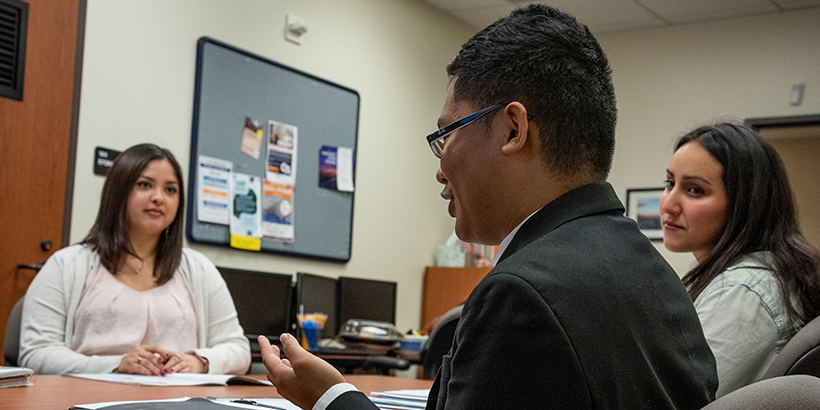
Strengthen Alliances With Community Organizations
Successful community engagement often hinges on the strength of partnerships formed between various community organizations. By building a network of alliances, groups can unify their efforts and resources toward common goals. These partnerships can range from informal collaborations to formal agreements that outline shared objectives and strategies.
Foster Cross-Sector Collaboration
Cross-sector collaboration involves partnerships between different sectors, such as
public, private, and nonprofit organizations, to address complex community issues.
These collaborations can bring unique perspectives and resources to the table, leading
to more holistic and innovative solutions.
Direct Service and Grassroots Initiatives
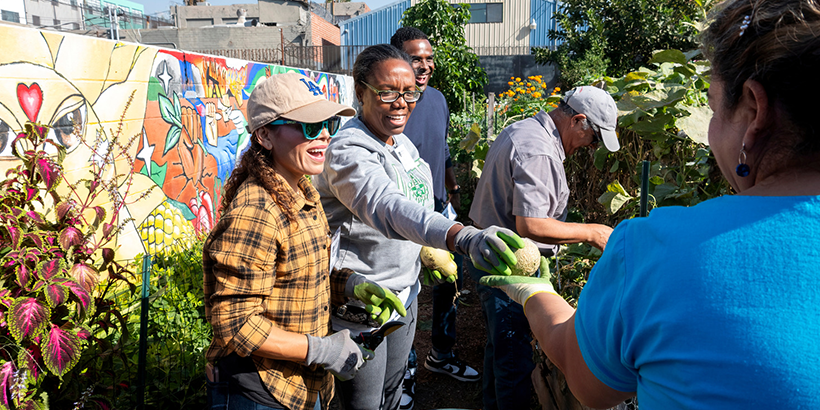
Volunteer With Local Charities
Volunteering with local charities is a direct way to contribute to community well-being and engage with members of the community. Whether it's community gardening or volunteering at a local food bank, these opportunities allow individuals to give back to their communities while gaining a deeper understanding of the local challenges people face. Such experiences can be transformative, not just for the beneficiaries but for the volunteers as well, as they often develop a greater sense of community and empathy.
Launch Grassroots Initiatives
Grassroots initiatives enable community members to take the lead in addressing local issues through a bottom-up approach, driven by the community rather than external authorities or organizations. Supporting these initiatives through resources like seed funding, training, and logistical aid empowers citizens to lead their own projects, meeting immediate needs while also fostering long-term capacity for self-advocacy and problem-solving.
Advocate for Policies That Support Vulnerable Populations
Advocating for policies that support vulnerable populations requires identifying the needs of at-risk community members and ensuring protective measures are in place. Advocacy can take many forms, from campaigning for more inclusive legislation to organizing support services for vulnerable groups.
Advance Your Community Engagement Expertise With a Master's in Public Policy
Pursuing a Master of Public Policy (MPP) can provide the expertise needed to lead effective community engagement initiatives. Pepperdine's MPP program integrates policy analysis, leadership training, and ethical decision-making to prepare students for careers in public service and advocacy.
The program provides ample opportunities for students to engage directly with community leaders and policymakers through internships, workshops, and a network of alumni. These experiences are crucial for applying classroom knowledge to real-world challenges, offering students firsthand insight into the intricacies of managing public policy initiatives.
Transform your passion into action. Explore Pepperdine's MPP program today and become a leader in community-driven change.
Engage with Pepperdine's Davenport Institute for Davenport Institute for Public Engagement and Civic Leadership
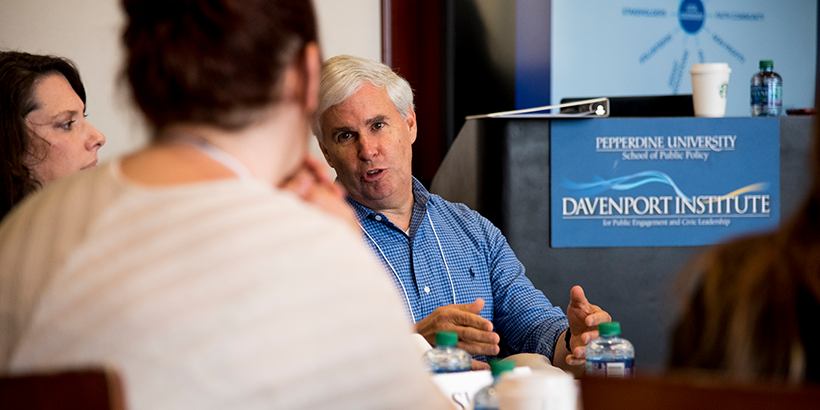
The Davenport Institute for Public Engagement and Civic Leadership, housed within the Pepperdine University School of Public Policy, is dedicated to advancing the practice of inclusive, community-driven decision-making. With a strong emphasis on local government, the institute works to strengthen democratic processes by fostering collaboration between citizens and public leaders. By providing training, thought leadership, and convening opportunities, the Davenport Institute equips local leaders with the tools to engage residents in meaningful ways and create policies that reflect community needs and aspirations.
Through its professional development programs, including certificates in public engagement for local government, the Davenport Institute offers essential resources to both elected officials and public service professionals. These initiatives are designed to improve public trust and ensure that diverse community voices are heard. Whether facilitating difficult conversations or guiding public leaders in navigating complex social issues, the institute's approach is grounded in the belief that true democracy thrives when all members of a community are involved in the policymaking process.
In addition to its domestic initiatives, the Davenport Institute is committed to exploring innovative models of civic engagement and sharing best practices through case studies and research. As local governments face an increasingly diverse array of challenges, the institute's work continues to be essential in helping communities build trust, foster collaboration, and create effective, sustainable policies.